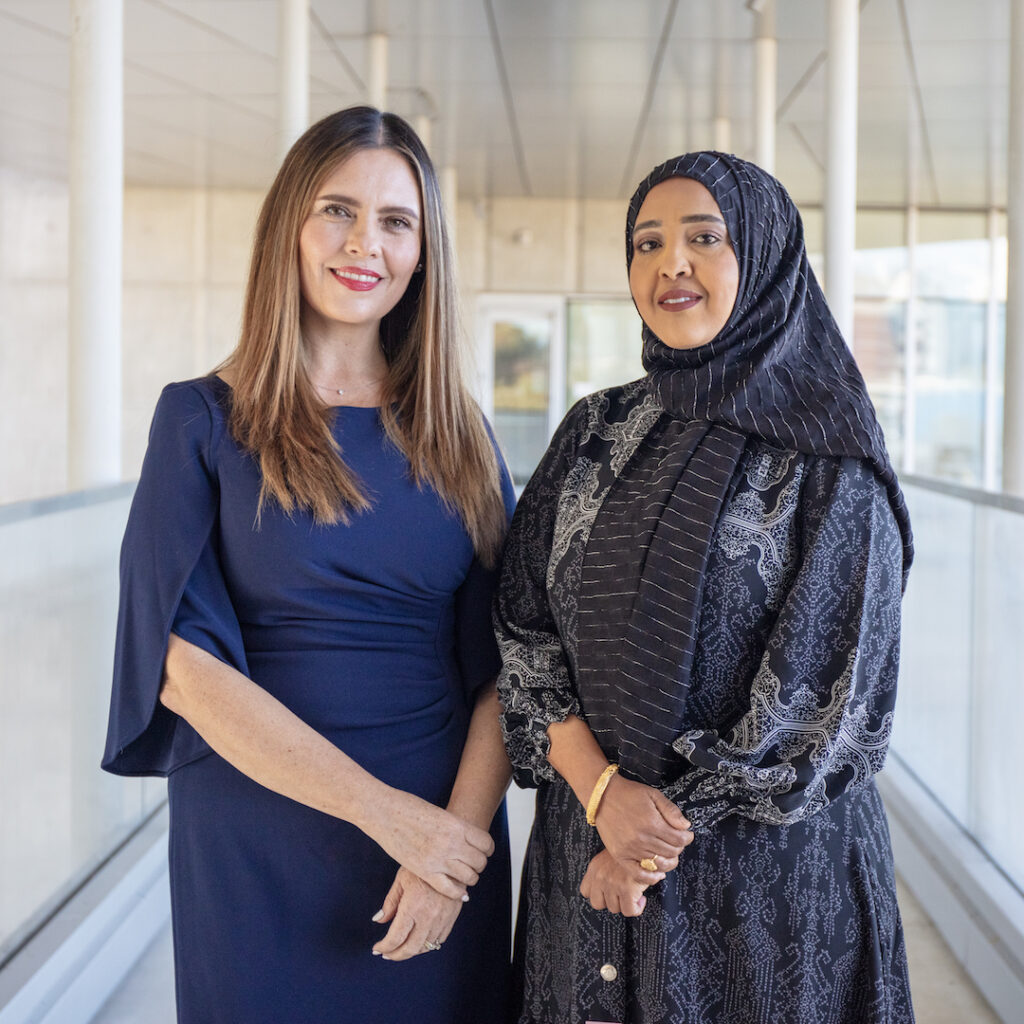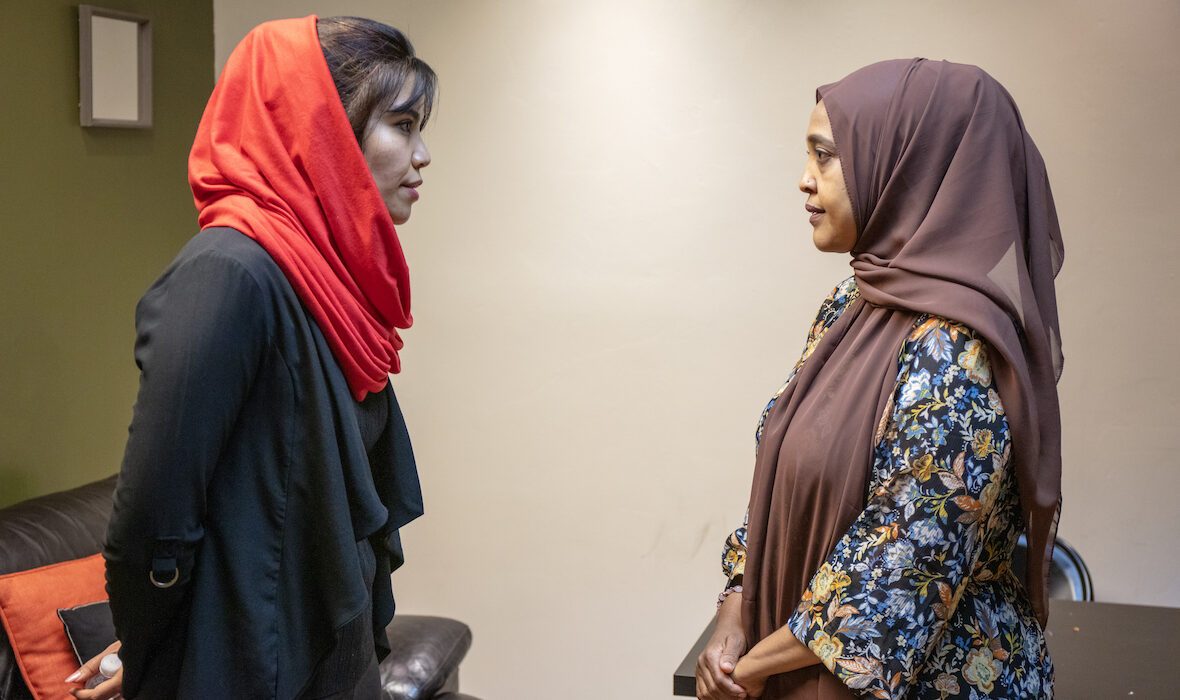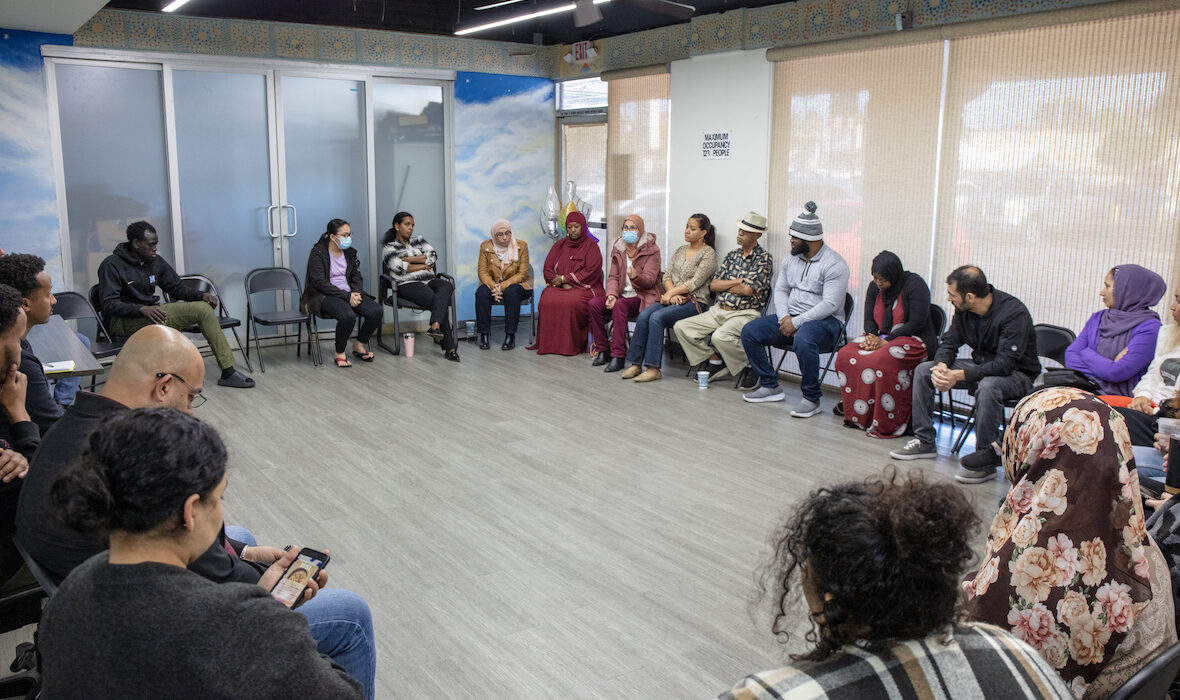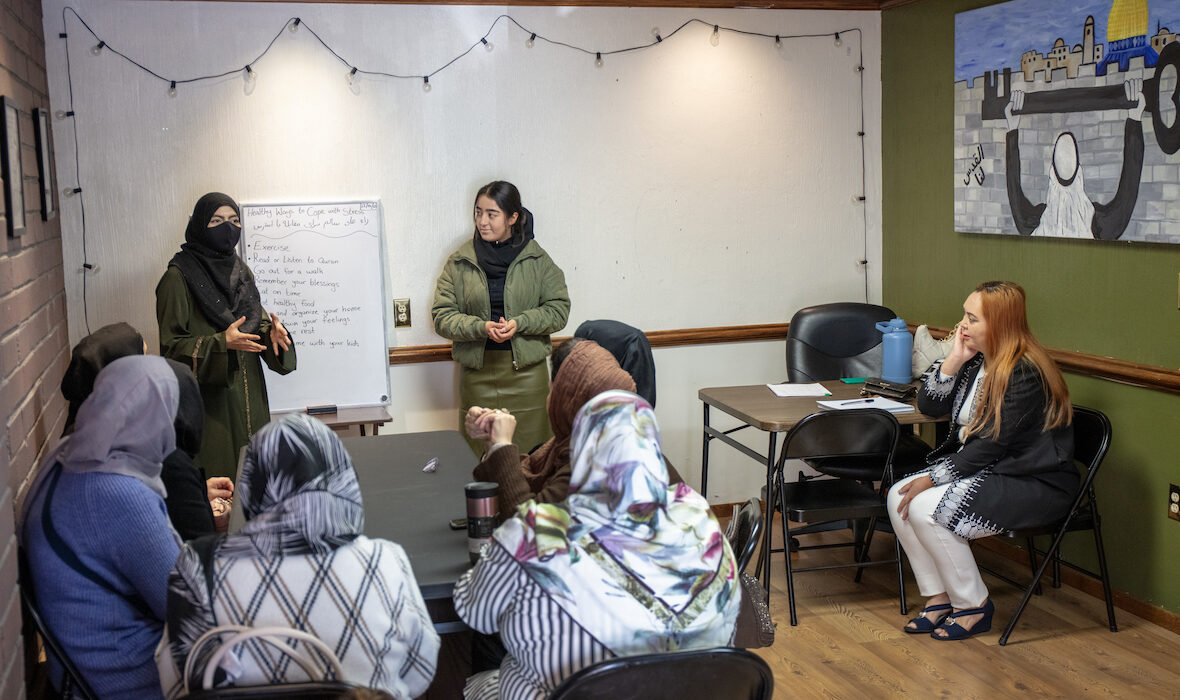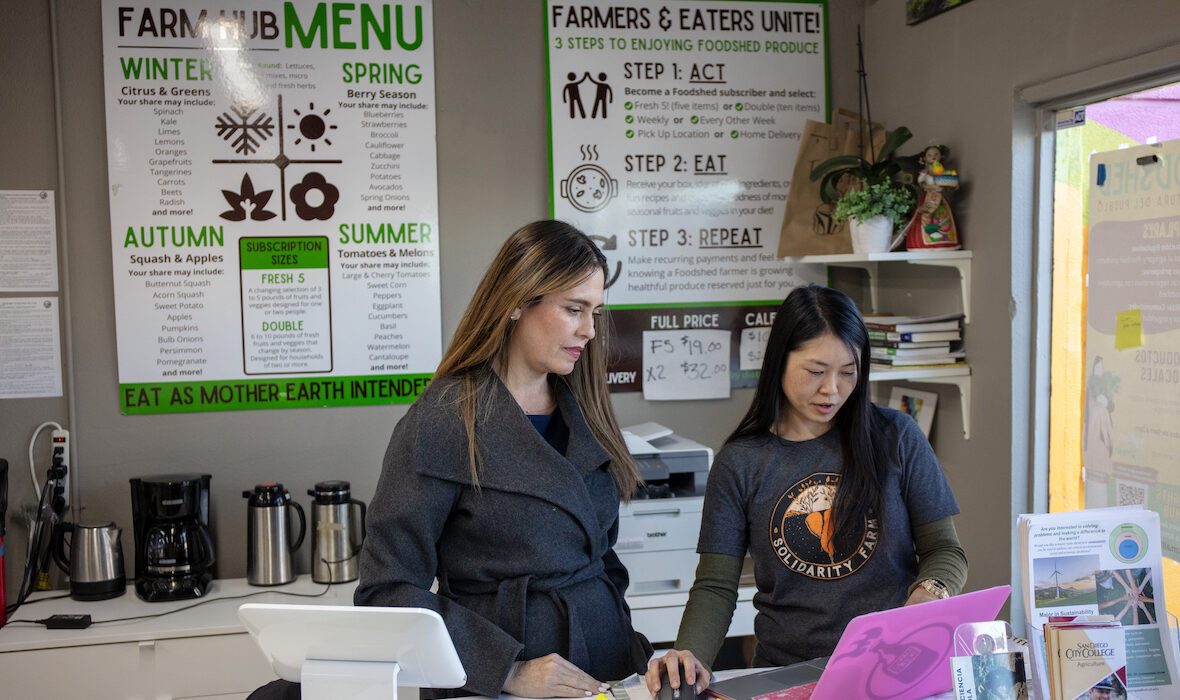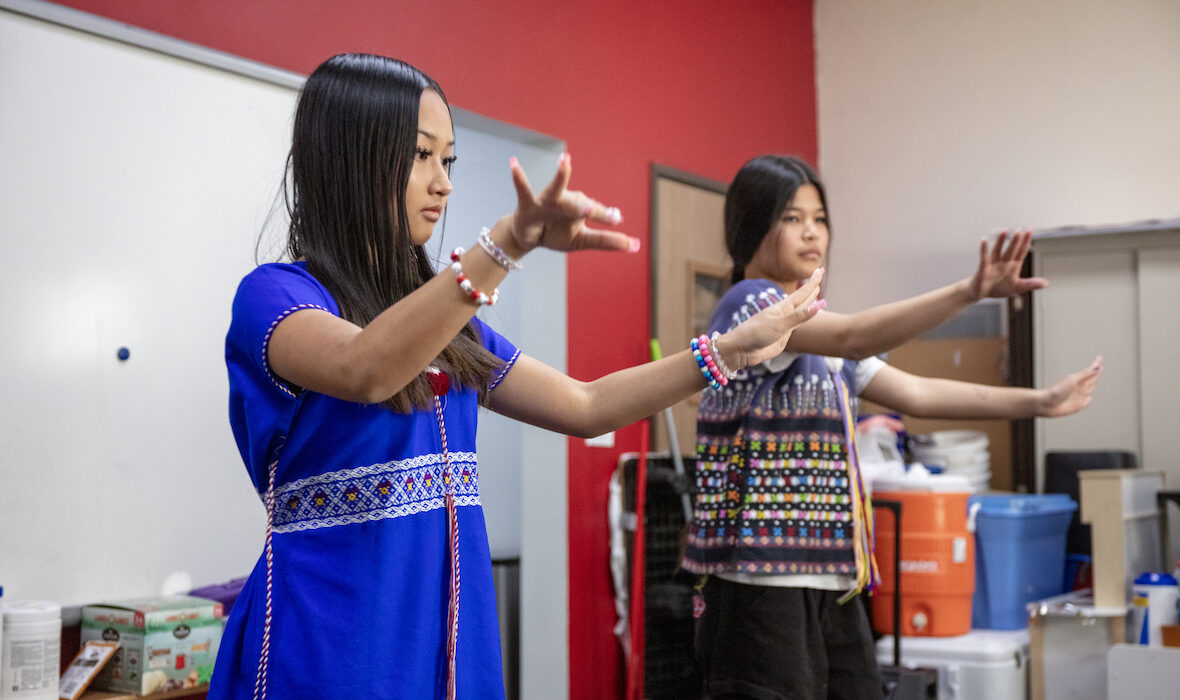Advancing health equity through collaborative, community-led initiatives
Overview
San Diego County is home to a diverse population of immigrants and refugees from nearly 115 countries. These communities, in contrast to their local peers, face significant disparities in accessing healthcare, nutrition, housing, education, and employment opportunities. At the UC San Diego ACTRI Center for Community Health (CCH), Blanca Meléndrez and Amina Sheik Mohamed, who serve as Executive Director and Director respectively, advance a Community-Led Transformation Model that activates community-designed solutions to address social determinants of health. As immigrants, Meléndrez and Sheik Mohamed leverage their personal journeys and insights to fuel their efforts to help others navigate similar paths.
“Our work is grounded in the belief that communities possess the inherent power to transform their health outcomes. We dedicate ourselves to providing the resources and research support needed for them to lead the way toward health equity, bridging the gap between knowledge and action.”
Under Meléndrez’s leadership, CCH has piloted population-tailored health promotion programs and leveraged over $80 million to support CCH initiatives that address a wide range of needs. One of CCH’s flagship programs is the Refugee Health Unit (RHU). Founded by Sheik Mohamed in 2017, RHU administers initiatives that promote the wellbeing of refugee families. One such initiative is the San Diego Refugee Communities Coalition, a collective of 12 ethnic community-based organizations that, with support from the RHU team, creatively work together on programming and funding opportunities to address the needs of San Diego’s diverse refugee populations. Looking forward, the leaders plan to replicate their initiatives across California, advancing their Community-Led Transformation Model to ensure those who are most impacted by systemic inequities are actively shaping solutions.
“We are an integral part of the community we serve, actively listening to its needs. Our model is collaboratively developed with the community to effectively address and respond to those needs.”
Primary Regions Served
Challenge
- California is home to 10.5 million immigrants, about one-fourth of the nation’s foreign-born population.[1] In the last 50 years, San Diego County has welcomed thousands of immigrants and asylum seekers and resettled more refugees than any other county.[2] It is now home to 698,000 people from 115 countries who speak 70 different languages.[3]
- Immigrants and refugees face challenges that impact their quality of life, including food and housing insecurity, access to education and employment opportunities, inadequate access to healthcare and other social services, and the ongoing impact of trauma on their families and communities.[4]
- In 2017, CCH implemented a community assessment process to understand how to best help the growing number of refugees settling in San Diego’s City Heights neighborhood. This assessment revealed several existing grassroots refugee-serving organizations with largely untapped potential, demonstrating a need for strategic support and collaborative funding opportunities.
Innovation
- CCH champions a Community-Led Transformation Model that addresses the social determinants of health via community-centered research and practice, and uplifting community leadership and solutions.
- In 2019, in response to its community assessment, CCH’s Refugee Health Unit co-founded the San Diego Refugee Communities Coalition (SDRCC), uniting 12 ethnic community-based organizations serving diverse refugee communities. As the backbone facilitator for SDRCC, CCH enhances the regional refugee support system by fostering collaboration over competition for resources.
- The Refugee Health Unit, in partnership with the California Department of Social Services, launched the Afghan Refugee School Impact and Afghan Youth Mentoring programs to offer culturally responsive academic and social support to newly arrived Afghan youth and families in California.
- CCH has collaborated with the USDA, the California Department of Social Services, and the San Diego County Health and Human Services Agency to research and pilot nutrition incentive programs, paving the way for many food security programs that benefit Californians enrolled in SNAP.
Impact
- Since 2001, CCH has leveraged over $80 million to activate community-led initiatives and programs, including nutrition security, food justice, health literacy, child and family wellness, youth leadership, and collective impact strategies.
- The Refugee Health Unit has facilitated the recruitment and training of over 40 multilingual individuals to serve as Community Health Workers and Community Support Navigators who deliver front-line health services and support.
- Within the SDRCC, ethnic community-based organizations make joint decisions about how grant funding is pursued and administered. The Refugee Health Unit builds the capacity of smaller organizations to implement, manage, and evaluate large grants.
- With $13 million in federal funding from the Office of Refugee Resettlement, RHU now administers the Afghan Refugee School Impact and Afghan Youth Mentoring refugee programs across the San Diego, San Francisco, Los Angeles, and Sacramento regions, providing direct services and support to over 2,000 newly arrived youth and families.
- CCH co-founded the ¡Más Fresco! Nutrition Incentive programs. Together with its other food security programs, the organization currently allocates over $1 million per month to over 30,000 households.
Opportunity
- In 2021, UCSD CCH became part of the Altman Clinical and Translational Research Institute in Health Sciences at UC San Diego. This integration facilitates community-research partnerships by bridging together academic researchers and communities, supporting community-engaged research, and ensuring research initiatives are mutually beneficial and non-extractive. Meléndrez and Sheik Mohamed hope to elevate this model to be replicated in other academic institutions.
- As global events increasingly lead to the displacement of refugees, CCH’s Refugee Health Unit is ready to expand a model that welcomes and supports those resettling in California. Sheik Mohamed envisions creating a data hub that will make refugee-specific data accessible to inform decision-making and support for refugee populations.
- Meléndrez aims to create an institute to expand nutrition incentives and “food-as-medicine” initiatives in underserved areas. It will also study the effectiveness of programs like ¡Más Fresco! to inform future hunger reduction and food access strategies.
The written profile and video reflect the work of the leader(s) the year they received a Leadership Award. Please contact the leader(s) for current information.
